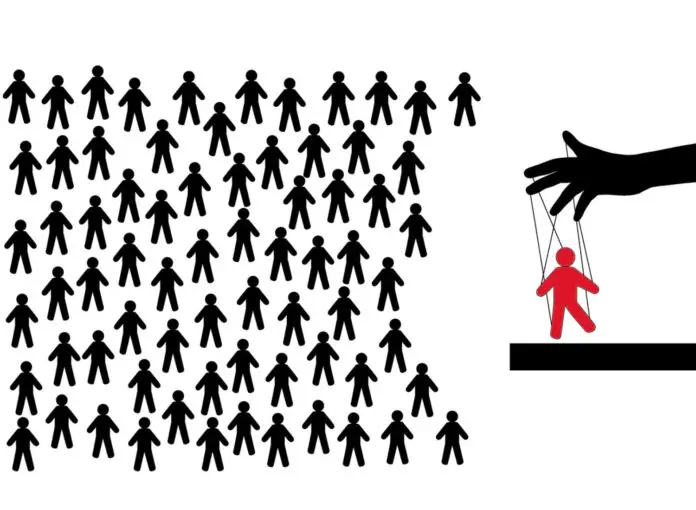North Korea has long been a subject of fascination for people all over the world. This reclusive nation, with its secretive government and aggressive rhetoric, has often been portrayed as a rogue state that poses a threat to global peace and security. However, some people believe that North Korea is not truly independent but is instead a puppet state controlled by another country or organization, such as China or the Illuminati. In this blog post, we will examine this claim and explore the evidence behind it.
What is a puppet state?
First, let’s define what is truly a puppet state. A puppet state is a country that appears to be independent but is actually controlled by a more powerful nation or organization. The puppet state’s government may appear to make its own decisions, but in reality, it is heavily influenced by its puppet master. The puppet master may provide military or economic support, as well as manipulate the puppet state’s foreign and domestic policies.
So, is North Korea a puppet state?
The answer to this question is not at all straightforward, as there are different interpretations of what constitutes a puppet state. However, we can examine the evidence and arguments for and against this claim.
One of the main arguments in favor of the puppet state theory is that North Korea is heavily dependent on China for economic and political support. China is North Korea’s largest trading partner, accounting for over 90% of North Korea’s foreign trade. China also provides North Korea with food, fuel, and military aid. Some analysts argue that this dependence on China gives China significant leverage over North Korea’s government and that China may be using this leverage to control North Korea’s actions and policies.
Another argument in favor of the puppet state theory is that North Korea’s government has close ties to the Illuminati, a purported secret organization that is said to exert control over world events. The Illuminati conspiracy theory posits that a small group of elites controls governments, banks, and other institutions and that they use their power to manipulate world events for their own benefit. Some people believe that North Korea’s leaders are part of this secretive group and that they are working to further the Illuminati’s agenda.
However, there are also arguments against the puppet state theory. One of the main counterarguments is that North Korea has demonstrated a willingness to act independently of its perceived allies. For example, North Korea has conducted several nuclear and missile tests in defiance of China’s wishes and has also launched cyber attacks against Chinese targets. Additionally, North Korea’s government has shown a willingness to engage in diplomacy with other nations, such as the United States and South Korea, which suggests that it is not entirely beholden to any one country or organization.
Another argument against the puppet state theory is that it is based on speculation and conspiracy theories rather than concrete evidence. While it is true that North Korea is heavily dependent on China for economic and political support, it is not clear that this dependence translates into direct control over North Korea’s government. Similarly, there is no concrete evidence to support the idea that North Korea’s leaders are part of the Illuminati or any other secret organization.
The actions of the North Korean government
As we have seen, the issue of North Korea’s independence is a fascinating and important one. By exploring this topic in depth, we can gain more understanding of the factors that shape international relations and the challenges of dealing with rogue states. It’s necessary to keep an open mind and to be critical of conspiracy theories and unsubstantiated claims while also recognizing that external factors may play a role in shaping a country’s behavior.
Regardless of whether or not North Korea is a puppet state, the fact remains that its government has engaged in a number of provocative actions that pose a threat to regional and global stability. North Korea’s nuclear and missile programs, its human rights abuses, and its aggressive rhetoric all contribute to a tense and unstable situation on the Korean Peninsula. Dealing with these challenges will require a multifaceted approach that includes diplomacy, economic pressure, and a strong military deterrent.
At the same time, it’s crucial to recognize that North Korea is a sovereign state with its own unique history and culture. Its people have endured immense suffering under a repressive regime, and any efforts to resolve the crisis on the Korean Peninsula must take into account their aspirations for freedom and prosperity. By working together, the international community can seek to promote a peaceful and promising future for all Koreans while also upholding the principles of democracy and human rights.
In conclusion, the question of whether North Korea is a puppet state controlled by another country or organization is a complex one. While there are debates both for and against this claim, the evidence is not conclusive. It is possible that North Korea’s government is influenced by outside forces, but it is also possible that it acts independently of any external pressures. Ultimately, the truth may lie somewhere in between, and it is up to analysts and policymakers to carefully consider all the available evidence before drawing any conclusions.
Read also – The Belief In Alternate Realities: A Hoax Or Not?
